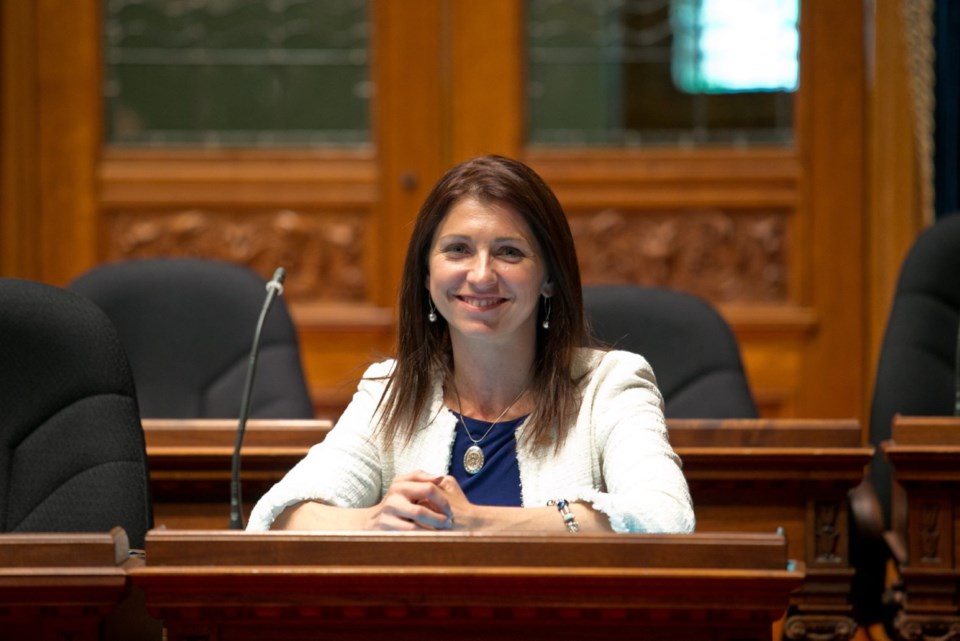Poor families on welfare can now earn a bit more money before the B.C. government begins clawing it back from their monthly income assistance cheques.
Social Development Minister Michelle Stilwell announced Tuesday that parents will be able to make up to $400 without having it deducted from their monthly cheque. The previous limit was $200.
The earnings exemption for families with a child who has a disability will increase to $500 from $300.
In addition, families who leave income assistance for a job will be able to keep their basic health supplement coverage for a year. This will allow them access to dental, optical, health and pharmacare programs.
The changes take effect Sept. 1.
“Our goal in our ministry is to ensure that we’re giving people the opportunity to reach their full potential,” Stilwell said.
“This is a change that will help them get out into the workforce even if it’s just a part-time job. It’s that start to gaining independence in the future.”
Stephen Portman, executive director of the Together Against Poverty Society, said the changes, while welcome, will help relatively few people.
The government’s own figures show that there were 134,000 employment and assistance cases in January.
Stilwell initially said the changes could potentially benefit more than 10,000 families on income assistance at a cost of $1.4 million.
But her ministry later released figures showing that, on average, only 794 families a month benefited from earnings exemptions in 2014, and only 74 per cent of those earned at or above the maximum.
“We see this trend of tinkering on the margins,” Portman said. “Government is appearing to be doing lots when, in fact, they’re doing very little.”
He said none of the changes gets at the core problem — that income assistance rates “are less than what is need to adequately survive” and have remained stagnant since 2007.
He noted that one parent with a child currently receives $945 a month. Even with the new earnings exemption, the most they would get a month is $1,345.
“The price of a one-bedroom apartment … is around $1,300 a month,” Portman said. “So you’re not doing anything to address the problem in a meaningful way. You’re making changes that make it appear as though you’re tackling some of the issues.”
NDP critic Michelle Mungall said the government needs to review its income assistance rates and explain how they expect people to live on them.
“They still believe that you can get a one-bedroom apartment or something decent to live in for $375 a month,” she said.
Stilwell said the government continues to refine its policies in light of the tight fiscal situation.
“When we are able, we hope that we will be able to make changes,” she said. “But, at this time, we still continue to look at ways to create opportunities for individuals to reach their full potential.”



